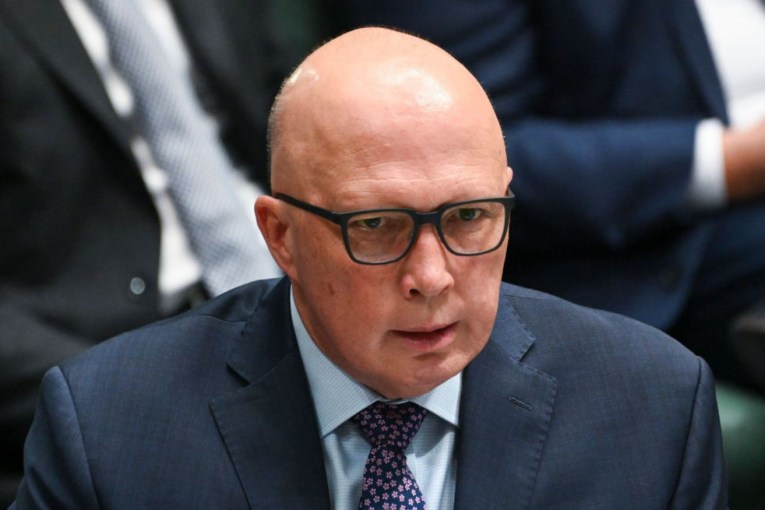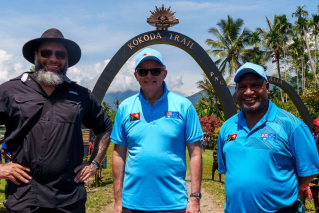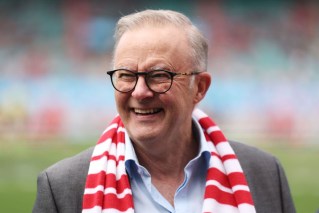Overseas travel could be back by December, but quarantine questions remain


Australians will be able to take off overseas without restrictions from Monday. Photo: AAP
Overseas holidays to the United States, England and Fiji could be back on the agenda by December, but Qantas is sweating on government changes to quarantine.
Primarily, questions still remain over how long Australian travellers will need to isolate on their return.
Two new dedicated quarantine facilities were announced on Thursday in Toowoomba and Perth, signalling they will be a feature of Australia for some time, but the travel industry hopes new trials of reduced or home quarantine will open up more options for tourism.
“It’s lovely to see some optimism, but whether it will happen will depend on quarantine rules,” travel agent Neil Playford said.
“Nobody will do two weeks mandatory quarantine, at thousands of dollars a head, unless they absolutely have to. But we’re getting closer to the light at the end of the tunnel.”
Qantas announced in its annual results on Thursday that it expected to recommence passenger flights to the US, United Kingdom, Canada, Japan, South Korea, Fiji and New Zealand by mid-December.

London travel could soon return. Photo: Getty
Qantas said it had picked destinations with “high and increasing levels of vaccination”, which the airline believed made them “highly likely to be classed as low-risk countries for vaccinated travellers to visit and return from under reduced quarantine requirements”.
In the federal government’s latest four-stage reopening plan – underpinned by the Doherty Institute modelling – internal COVID restrictions like border closures could be substantially wound back after 70 per cent adult vaccination rates, and the international border could reopen at 80 per cent.
Senior federal sources told The New Daily that Qantas’ mid-December timeline was broadly in line with what the government anticipated.
Virus tracker website COVIDLive projected that, on current vaccination rates, Australia could hit 80 per cent double vaccination by mid-November.
Tourism Minister Dan Tehan told Parliament on Wednesday that, at that benchmark, “outbound international restrictions will be lifted and travel bubbles will be expanded”.
“Not only will we have the travel bubble with New Zealand but the Pacific Islands, Singapore, South Korea, Japan, the US, the UK are all possibilities that we’ll be able to extend our travel bubbles to,” he said.
At that higher benchmark, options to replace the mandatory two-week hotel quarantine for returning travellers could be explored, including looking at shorter stays or home isolation.
The federal government has offered no firm details about what new quarantine arrangements could look like, but Prime Minister Scott Morrison said on Thursday that a home quarantine trial in Adelaide was in motion.
“It’s also pleasing to know that the South Australian home quarantine pilot is now under way, and I want to thank Premier Marshall for the great work he’s done there,” the PM said.
It’s not clear what exactly those “reduced quarantine” pilot programs would look like.
But Phase D of the reopening plan, which kicks in at an as-yet-undisclosed vaccination number above 80 per cent, envisions “uncapped inbound arrivals for all vaccinated persons, without quarantine”.
Neil Playford, director of Playford Travel and a Travel Associates franchisee on the Sunshine Coast, said it was crucial to lock in new quarantine arrangements to help restart the tourism sector.

Hotel quarantine would be eased and changed under Phase D of the reopening plan. Photo: AAP
“Two weeks quarantine would be a huge barrier to the mass market leisure traveller,” he told The New Daily.
“At least it would give people some step to seeing friends and family overseas, and a step in the right direction.”
Mr Playford said he expected significant travel restrictions to remain until at least mid-2022, including a “staggered reintroduction” of travel to countries assessed as low risk.
Peter Hosper, co-founder of corporate travel agency The Travel Authority Group, said his industry was “extremely excited” at Qantas’ projections, but stressed that new quarantine arrangements were vital.
“If someone goes on a two-week business trip, they don’t have another two weeks to tack on for quarantine,” he told TND.
“Something will need to change, otherwise there will be great hesitancy to travel. The obvious answer is get vaccinated.”
Mr Hosper said home quarantine would be a “viable option” for business travellers.
He and Mr Playford also called on the federal government to again pledge financial support to the travel industry, in light of expectations that tourism will not return to substantial levels until at least mid-2022.
Mr Hosper also raised the prospect of a “complicated” set of restrictions once international travel resumes, including vaccine passports and border rules, which he claimed would create a need for travel agents and expert advice.
“It’ll be a minefield out there. It will be tricky for a while. We’re gearing up for people to need our services more than ever,” he said.
BREAKING: A dedicated regional quarantine facility will be built at Wellcamp Airport near Toowoomba. As we contend with the dangerous Delta variant, we need fit-for-purpose quarantine facilities. #covid19 pic.twitter.com/sv1qEHUL1Z
— Annastacia Palaszczuk (@a_palaszczuk) August 26, 2021
Also on Thursday, the federal government locked in plans for a dedicated quarantine facility in Perth, while Queensland Premier Annastacia Palaszczuk decided to go it alone by announcing her own state-funded facility at Wellcamp airport near Toowoomba.
That proposal was knocked back by the federal government as it didn’t meet the Commonwealth checklist of being close enough to a major hospital, with Canberra instead supporting a facility at Pinkenba.
When asked about the Wellcamp progress, Mr Morrison said “good for them and I wish them every success”.
“[Ms Palaszczuk] has been at liberty to do that for months … the Queensland government was always in a position to go ahead with that facility,” he said.
Ms Palaszczuk said Queensland would use that facility to replace hotel quarantine spots in Brisbane.








